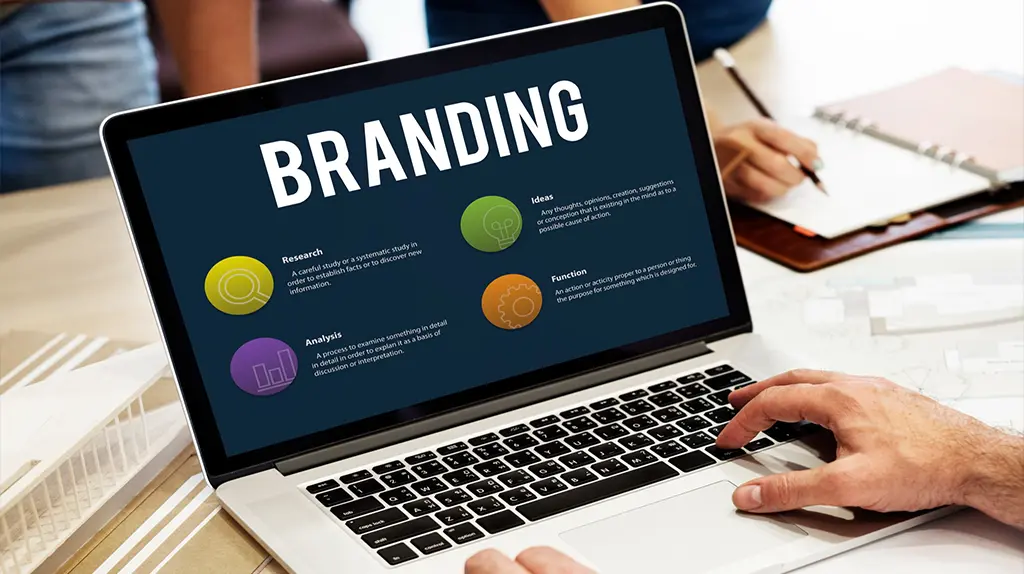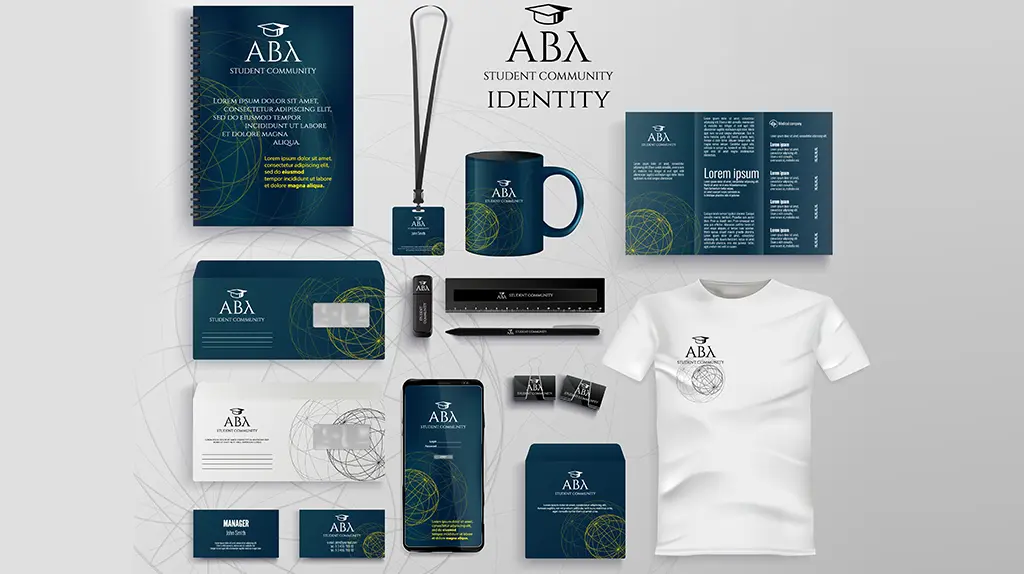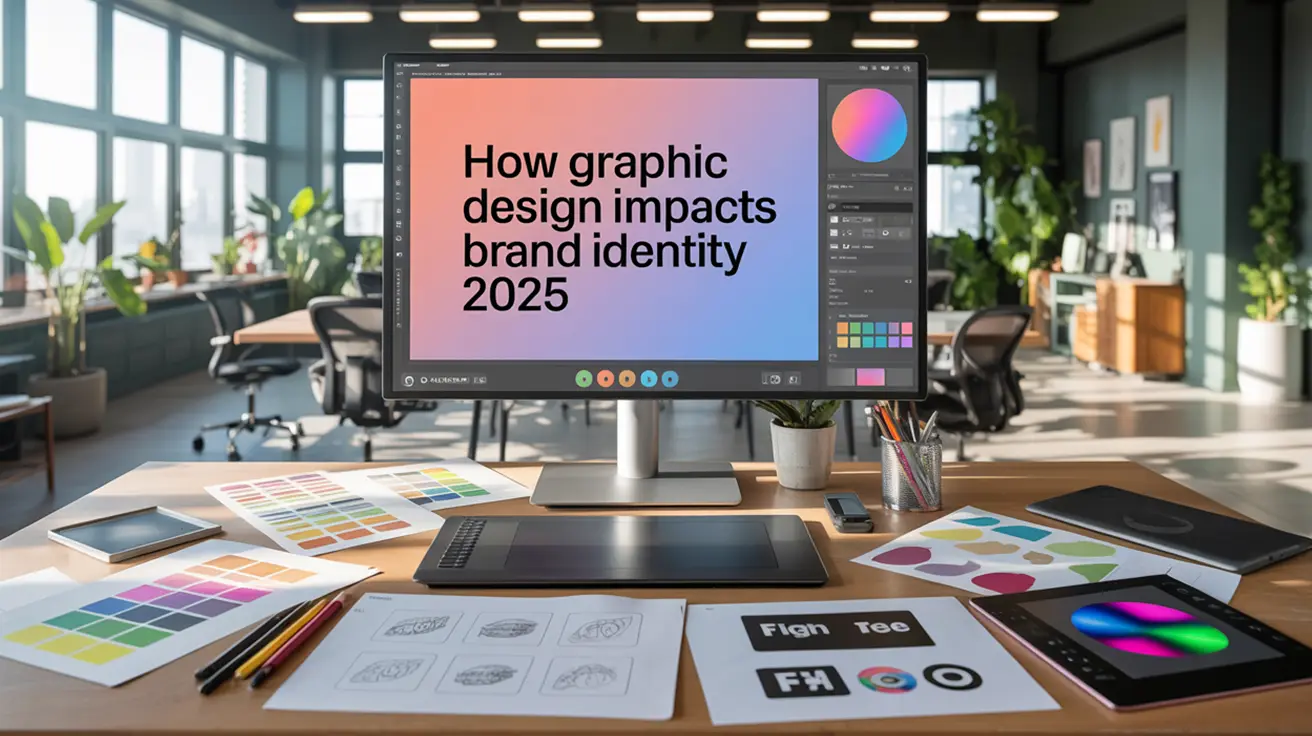Brand identity is no longer just a buzzword in today’s highly competitive business world. It is the heart of every successful business because it affects how customers see and connect with its products and services. Graphic design is one of the most important tools for creating this identity. Graphic design is very important for showing off your brand’s personality, values, and vision. It does this through your logo, website, social media graphics, and packaging. This article goes into great detail about how graphic design affects brand identity, explaining why it’s important and how it can help your business stand out.
Brand identity is the set of all the visual and sensory things that make up a brand for the public, like its colors, logos, fonts, images, and design style. These things all work together to change how people see, remember, and feel about a brand. A strong brand identity shows what the company stands for, what it wants to do, and what it wants to be. It makes sure that every interaction with the brand, from its website to its packaging to its social media to its advertising to its customer service, is the same.
A brand’s personality and promise should be shown through its visual appeal as well as its strategic use of color. When done right, it gives a brand credibility, builds trust, and makes it stand out from its competitors.
Components of Brand Identity
Brand identity is made up of several important parts, such as:
- Logo: The logo is the most important part of brand identity: it is instantly recognizable and represents the brand.
- Color Palette: A set of colors that are used consistently to create feelings and make things recognizable.
- Typography: The fonts and styles that show the brand’s tone, whether it’s serious, modern, playful, or traditional.
- Imagery: Pictures, drawings, and graphics that help get the brand’s message across visually.
- Layout and Composition: the way visual elements are arranged to direct the user’s attention and experience.
- Tone of Voice: This is mostly verbal, but it also works with visual elements to make a single identity.
Difference Between Brand Identity, Brand Image, and Branding
- Brand identity is how a brand shows itself to the public through words and pictures.
- Brand image is how people see a brand. Brand Image is how people think about a brand and how they actually feel about it.
- Branding is the process of making, growing, and keeping a brand’s identity and image over time.
💡 Pro Tip :
Check your brand identity on a regular basis to make sure it fits with your current customers and business goals.
The Role of Graphic Design in Branding
Graphic design helps tell a brand’s story by showing its mission, personality, and values in pictures. Brands tell emotional stories that people can relate to and remember through carefully chosen design elements. Every choice of shape, color, and layout adds to the bigger picture of who the brand is and what it stands for. Design is the link between brand identity and how customers see it, whether it’s a simple logo that says “simple” or bright packaging that says “creative.”
Graphic design that tells a good story isn’t about being flashy; it’s about being important. Consistent visuals create a story that builds trust, conveys values, and makes people feel things, making the brand more relatable and human in the eyes of the consumer.

Consistency and Recognizability
Visual consistency is important for creating a brand identity that people can easily recognize. Design consistency strengthens the brand’s voice by using the same color scheme, repeating design elements, or the same typeface across all media. Repetition of these things makes connections in the brain and makes it easier to remember the brand.
Every time you talk to a customer, whether it’s on Instagram or in the packaging of your product, you should reinforce your brand. Over time, people are more likely to remember and trust brands that look the same.
💡 Pro Tip :
Make brand kits for your employees and partners and give them to them. This will make sure that everyone uses the same visual language when they design. Consistency in all brand elements, from the website to the packaging, makes it easy to recognize. Using the same design patterns over and over again helps people remember your brand and builds trust over time. Consistent design helps customers remember and connect with the brand by making it easier for them to find it.
Graphic design significantly shapes both the visual and emotional perception of a brand. The choice of design elements like color, typography, and layout affects how people feel about a brand and influences their decisions.
Visual and Emotional Impact
Well-designed visuals aren’t just aesthetically pleasing they’re emotionally charged. Strategic use of design can evoke specific feelings like trust, enthusiasm, security, or sophistication. For example, blue tones can build a sense of calm and trust, while red may evoke excitement or urgency. The emotional resonance these visuals create becomes a driving factor in how loyal customers feel toward a brand.
Influence on Customer Perception and Loyalty
A professional and cohesive design creates an image of credibility and reliability. People often judge the quality of a product or service based on the visual branding they encounter first. If a brand looks polished, customers assume the same applies to the service or product quality. Over time, this trust fosters strong customer loyalty and repeated engagement.
First and Lasting Impressions
Graphic design is often the first interaction point between a brand and potential customers. Whether it's a website landing page, social media ad, or product packaging, design makes an immediate impression. A captivating, emotionally aligned design can make your brand stand out in a crowded marketplace and remain memorable long after the initial exposure.
Psychological Triggers Through Design
Visuals can also tap into psychological triggers like using symmetry for stability, whitespace for sophistication, or high contrast for urgency. Understanding how different design elements influence human psychology gives brands an upper hand in shaping consumer behavior.
💡 Pro Tip :
Your homepage design should prioritize clarity and emotional impact it sets the tone for the entire user experience.
Building Brand Identity Through Graphic Design

Graphic design helps define and reflect brand values visually, aligning imagery and layouts with tone and messaging. When executed with intention, design becomes a visual ambassador for your brand’s philosophy, ethics, and purpose. It communicates not just what your brand does, but why it does it and why it matters.
Tips for Using Graphic Design to Define Brand Values
- Use colors that align with emotional tone (e.g., blue for trust, green for eco-friendliness).
- Select imagery that reflects your audience’s lifestyle and interests.
- Match typography to your brand voice—elegant fonts for luxury, bold fonts for strength.
- Leverage iconography and symbols that reinforce your mission (e.g., leaves for sustainability).
- Keep your visuals culturally appropriate and inclusive to reflect modern brand ethics.
Role of Brand Guidelines and Templates
Creating a brand style guide ensures consistency in design across all channels. Templates for social media, presentations, and advertisements streamline design efforts and preserve brand integrity. A good style guide includes logo usage rules, color codes, font pairings, photography direction, and even tone of voice guidelines.
These tools allow internal teams and external partners to create content that reflects a unified, recognizable brand. With everyone aligned visually and verbally, brand values become easier to communicate and more likely to stick.
How Visuals Align with Messaging
Visuals should reinforce your written content. For instance, a fun, quirky message should be paired with bright colors and playful typography to ensure cohesion between what’s said and what’s seen. A disconnect between visuals and messaging can confuse or alienate your audience.
For example, a brand that promotes environmental consciousness should avoid overly slick, plastic-like design aesthetics and instead favor natural textures, organic shapes, and earthy tones.
💡 Pro Tip :
Update your brand guidelines annually to reflect new trends and business growth. Aligning design updates with product or service evolution ensures your visuals stay relevant and powerful.
Importance of Design in Branding Strategy
Graphic design is integral to marketing, packaging, and advertising. It drives consumer engagement, elevates perceived product value, and plays a vital role in conversion-focused campaigns.
Influence on Marketing, Packaging, and Advertising
Marketing: Design helps communicate brand messages quickly through compelling visuals think social media posts, email banners, and landing pages. Graphic design ensures that campaigns are not only seen but remembered. For example, a strong visual hierarchy in email newsletters can dramatically increase click-through rates.
Packaging: More than just a container, packaging is a brand storyteller. From the box structure to its color palette, the design influences tactile and visual perception. Unboxing experiences shared on social media have made design even more influential in word-of-mouth marketing.
Advertising: Ads must grab attention fast—especially in digital formats where you only have seconds to make an impression. Bold headlines, eye-catching graphics, and brand-aligned colors help convey the core message while keeping brand identity intact.
Design Quality and Brand Trust
High-quality design signals that a company is credible and trustworthy. Every detail—from resolution to spacing tells the consumer whether your brand pays attention or cuts corners. In industries like healthcare, finance, or tech, where trust is critical, clean and professional visuals are often non-negotiable.
Design as a Competitive Differentiator
In saturated markets, graphic design can be a unique selling point. A well-designed brand stands out with memorability and emotional resonance. Think about how Glossier’s pastel minimalism defined a new era in beauty branding or how Oatly’s playful packaging redefined the oat milk market. A distinct design language can be the difference between being scrolled past or shared.
💡 Pro Tip :
Invest in user feedback and A/B testing to gauge how your visual assets perform before launching a full campaign. This ensures your design resonates with real audiences and reduces costly redesigns.
Case Studies or Examples
Slack: Their vibrant color palette and unique iconography helped them stand out in the corporate tech space.
Mailchimp: Known for their bold illustrations and playful design, Mailchimp made email marketing approachable and fun.
Old Spice: Their rebranding used quirky, over-the-top visuals to appeal to a younger audience, transforming an outdated brand into a cultural icon.
Conclusion
Graphic design is far more than decoration it’s a fundamental part of how brands communicate, connect, and grow. The role of graphic design in branding cannot be overstated; it’s the foundation for visual branding, consistency, and emotional resonance. By investing in high-quality, strategic design, businesses can craft a strong brand identity that not only stands out but also endures.
Whether you’re launching a new business or revitalizing an existing one, always consider the importance of design in branding. From the first logo draft to every piece of content shared online, each visual decision shapes how the world sees your brand. Don’t underestimate the power of design—embrace it, and watch your brand thrive.
Frequently Asked Questions (FAQs)
Graphic design visually expresses a brand’s identity through elements like logos, colors, and typography. It communicates brand values and helps create a consistent, recognizable presence.
Design affects how people feel about a brand. Professional, well-thought-out visuals foster trust, while poor design can damage credibility.
Absolutely. Professional design enhances brand credibility, attracts customers, and creates a memorable identity regardless of business size.
Graphic design aligns visual elements with brand messaging to build a cohesive and memorable identity. It helps shape how customers recognize and differentiate your brand from competitors.
Visual branding establishes instant recognition. Through consistent graphic design, brands create a unified look across platforms, reinforcing trust and professionalism.
Design directly affects how your audience perceives quality, trustworthiness, and professionalism. A strong visual identity often leads to higher consumer confidence and loyalty.
Graphic design brings branding strategies to life through compelling visuals. It helps communicate marketing messages clearly and increases consumer engagement.
Consistent design across web, print, and social media builds brand reliability. It ensures your audience has the same experience, whether they visit your site or see an ad.
Design elements like illustrations, colors, and layout work together to tell a brand’s story visually, making it easier for audiences to emotionally connect with the message.
Use brand guidelines that cover logo usage, color codes, typography, and layout rules. These guidelines help your team and partners maintain visual consistency.
Want Professional Feedback?
These projects are ideal for personal growth, but they become truly powerful with expert critique, mentorship, and structured learning. That’s where a professional course makes the difference.
✅ Inside our 

Get feedback from real designers
Build industry-level projects
Learn tools like Photoshop, Illustrator, Figma, Firefly, and more
Learn how to package your projects into a real portfolio
– Turn your creativity into a career that’s future-proof.








